Green People’s Energy for Africa
Background of the Initiative
On behalf of the Federal Ministry for Economic Cooperation and Development (BMZ), this initiative is jointly implemented by Deutsche Gesellschaft für Internationale Zusammenarbeit (GIZ) GmbH and KfW Development Bank.
This initiative is embedded in the reality that 600 million people in sub-Saharan Africa still do not have access to modern energy technologies and services. The existing supply of electricity across many countries in the region cannot cover its demand. With limited technologies available locally, energy production is costly, inefficient and causes harmful side-effects to human health. Energy demand in Africa will continue to rise disproportionate to the existing supply due to high population growth, dynamic economic growth and the development of higher standards of living in some areas.
Africa’s demand for energy is expected to increase by 80% through 2030. Meeting this demand is a challenge for all of us because sustainable economic development and the achievement of Sustainable Development Goal (SDG) 7 (access to affordable, reliable, sustainable and modern energy for all) is only possible if sufficient energy is available. Due to the increasing urgency of preventing and mitigating the impacts of climate change, the Paris Climate Agreement and SDG 13 (action to combat climate change and its impacts) require that growth in Africa be powered by renewable energy.
The most challenging part of this agenda is likely to be improving access to modern and renewable energy in rural areas. The BMZ initiative is designed to support these goals. It supports the development of decentralised renewable energy systems in rural regions of Africa with the participation of citizens, municipalities, cooperatives and companies.
Special attention is paid to the promotion of local value creation through the supply of energy for businesses and social institutions such as schools or health centers, and the promotion of framework conditions for investments.
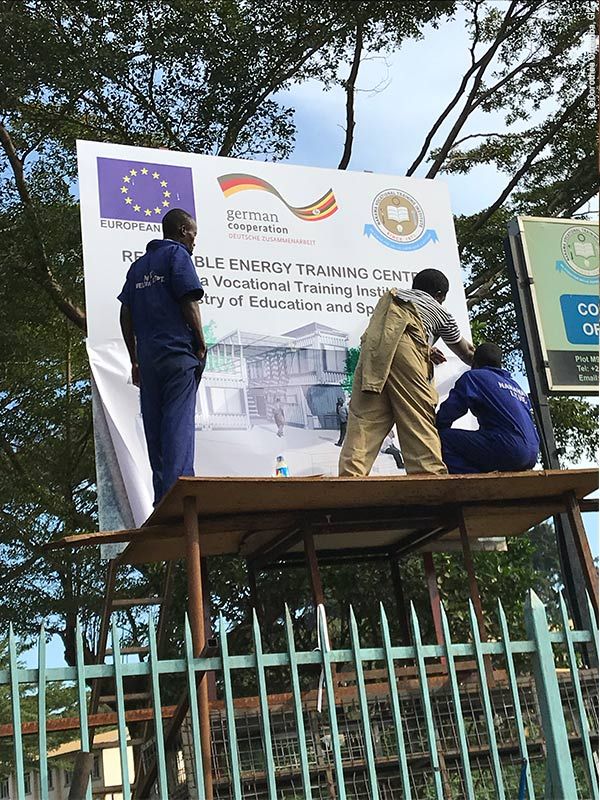
Objectives of the Initiative
Objectives of the Initiative
The initiative Green People’s Energy for Africa aims to improve the conditions for decentralised energy supply in selected sub-Saharan African countries with the participation of citizens and companies. Activities will focus in the following countries: Benin, Côte d’Ivoire, Ethiopia, Ghana, Mozambique, Namibia, Senegal, Uganda and Zambia. In addition to country-specific measures, the initiative promotes renewable energy projects of common benefit across countries and strengthens partnerships between actors in Europe and Africa.
Contribution to the Agenda 2030 for Sustainable Development
Contribution to the Agenda 2030 for Sustainable Development
In the overarching context of international development cooperation, the initiative, Green People’s Energy for Africa contributes to the Agenda 2030 for Sustainable Development, which was adopted by the United Nations Member States in 2015. In particular, this applies to the Sustainable Development Goal (SDG) 7, which calls to ensure access to affordable, reliable, sustainable and modern energy for all by 2030. By promoting decentralised and renewable energy solutions, the initiative not only addresses the fight against energy poverty in Africa, but also contributes to SDG 13, the Climate Change Goal, by combating increasing carbonisation in Africa. Other positive impacts include SDG 1 (poverty), SDG 3 (health), SDG 4 (education), SDG 5 (gender equality), SDG 8 (sustainable economic growth) and SDG 17 (global partnerships).
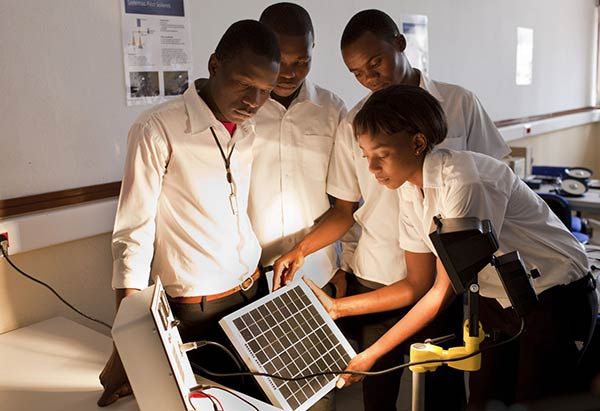
Affordable and clean energy for rural Africa
Large power plants and companies are not the only providers of electricity. Experience from Germany demonstrates that citizens, municipalities and cooperatives can also play a decisive role in shaping energy system transformation based on decentralized renewable energy resources.
For this reason, the participation of citizens, small and medium-sized enterprises, municipalities, public associations and energy cooperatives is also at the centre of this initiative. With their capital, labour, contextual knowledge and ideas, local populations contribute to the planning, installation and operation of energy supply systems in rural Africa in a climate- and environmentally-friendly way. At the same time, local citizens, as co-owners and co-operators of these energy systems, assume responsibility and interest in their maintenance.
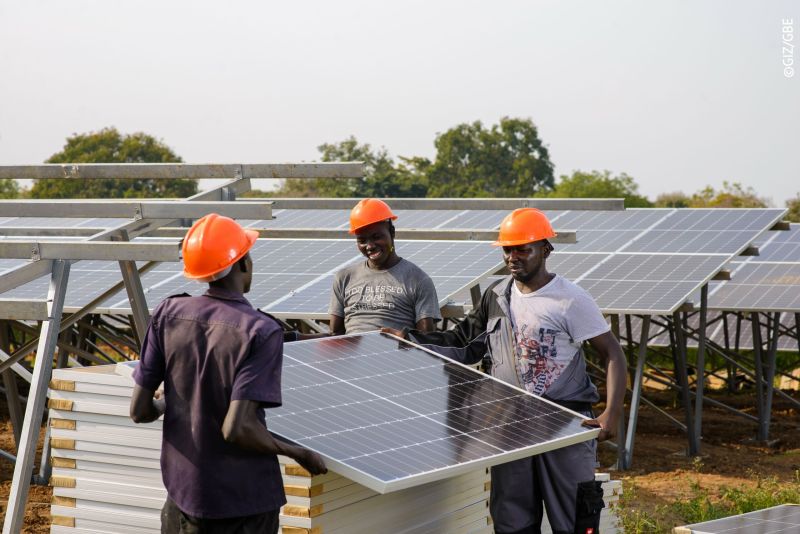
Special Representatives for Energy in Africa
Bärbel Höhn
BMZ Special Representative for Energy in Africa
Former Minister of State,
Member German Bundestag (2005-2017),
Chair Global Renewable Congress
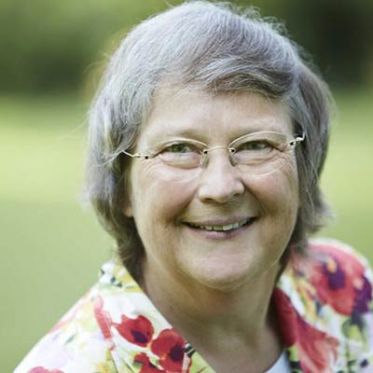
“The initiative, Green People’s Energy for Africa, is intended to provide people in rural areas across nine African countries with access to electricity through the use of renewable energies and thus create new income, jobs and prospects, such as through the processing of fruit, cooling, mills, welding or forging work and much more.”
Josef Göppel †
BMZ Special Representative for Energy in Africa
Member German Bundestag (2002-2017),
Chairman Landcare Germany
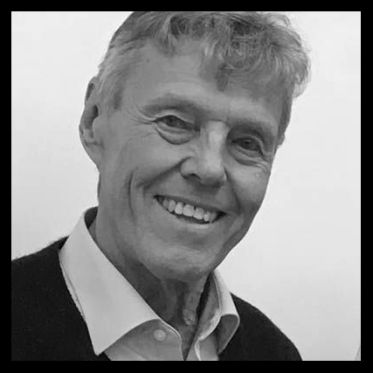
“The initiative, Green People’s Energy for Africa will be particularly successful in bringing modern energy services to rural areas if it draws on good approaches that already exist. The training of young Africans in renewable energy is particularly important to me because they can make an effective contribution to sustainable development as qualified specialists in their home countries.”
The initiative Green People’s Energy for Africa is accompanied by the Special Representatives for Energy in Africa, Bärbel Höhn and Josef Göppel. They act as “ambassadors” of the initiative on an honorary basis and actively promote a German-African exchange of knowledge as well as partnerships in the field of energy between Africa and Europe. As former members of the German Bundestag, they possess extensive expertise and experience in the fields of energy, climate and the environment. They are able to contribute both their extensive expertise in the energy sector as well as their political experience and networks to the implementation of the Green People’s Energy for Africa initiative.
Find out more about their commitment in the interview with the Special Representatives:
Topics of the Initiative
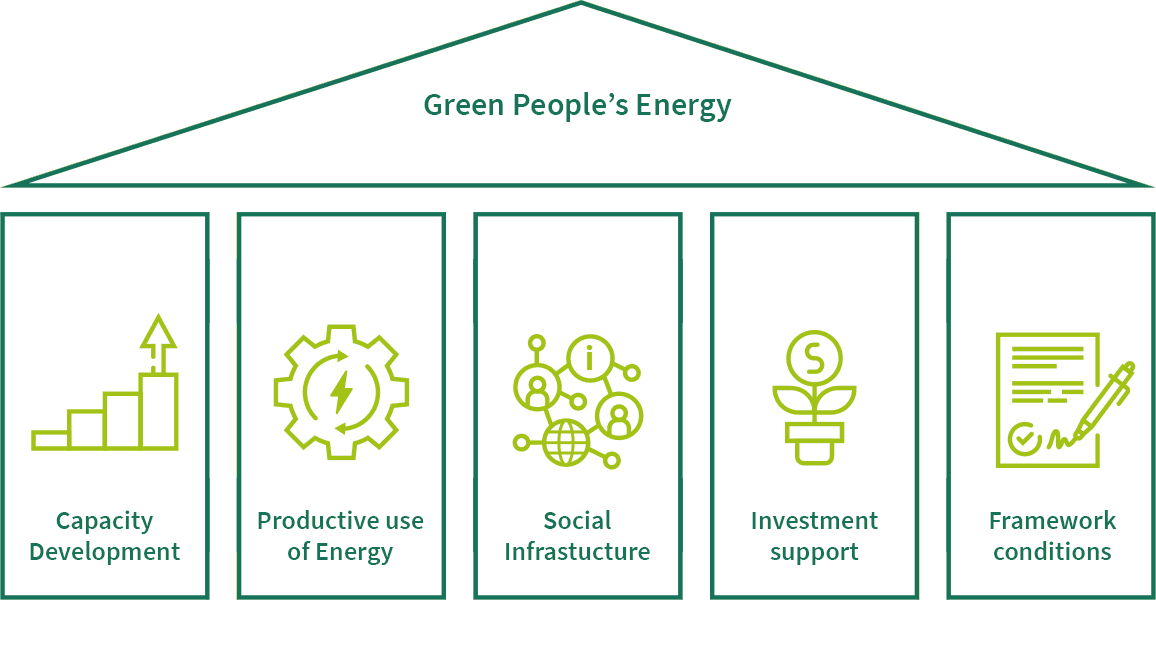
BMZ, GIZ und KfW
On behalf of the Federal Ministry for Economic Cooperation and Development (BMZ), this initiative is jointly implemented by Deutsche Gesellschaft für Internationale Zusammenarbeit (GIZ) GmbH and KfW Development Bank.


